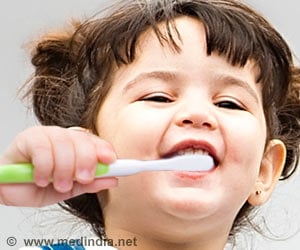A simple test on teeth, which are naturally shed by children as they grow, could provide useful information about future health risks of the baby and the mother.

We know that stress and poor diet in mothers, both during pregnancy and after birth, can have an impact on a child’s development. "A simple test on teeth that are naturally shed by children as they grow could provide useful information about future health risks," said Dr. Julia Beaumont, lead researcher from the University of Bradford.
Levels of carbon and nitrogen isotopes within bone and teeth, and the relationship between the two, change with different diets. So baby teeth can reveal clues about the diet of the mother during pregnancy and the diet of the child immediately after birth.
Nitrogen isotope levels are higher in people on protein-rich diets and in breastfed babies, and lower for vegetarian diets. However, in the samples taken from the famine cemetery, the results were counter-intuitive. The babies who showed higher nitrogen isotope levels at birth didn’t survive into adulthood.
Those who did survive had lower and more stable nitrogen isotope levels throughout early childhood. Beaumont believes that, far from being an indicator of a good start in life, the higher nitrogen isotope levels showed that the mothers were malnourished and under stress.
"Where pregnant and breastfeeding mothers are malnourished however, they can recycle their own tissues in order for the baby to grow and then to produce milk to feed it," Beaumont said. "We believe this produces higher nitrogen isotope levels and is what we’re seeing in the samples from the 19th-century cemeteries. Babies born to and breastfed by malnourished mothers do not receive all the nutrients they need, and this is possibly why these babies didn’t survive," she concluded.
Source-IANS
 MEDINDIA
MEDINDIA



 Email
Email










